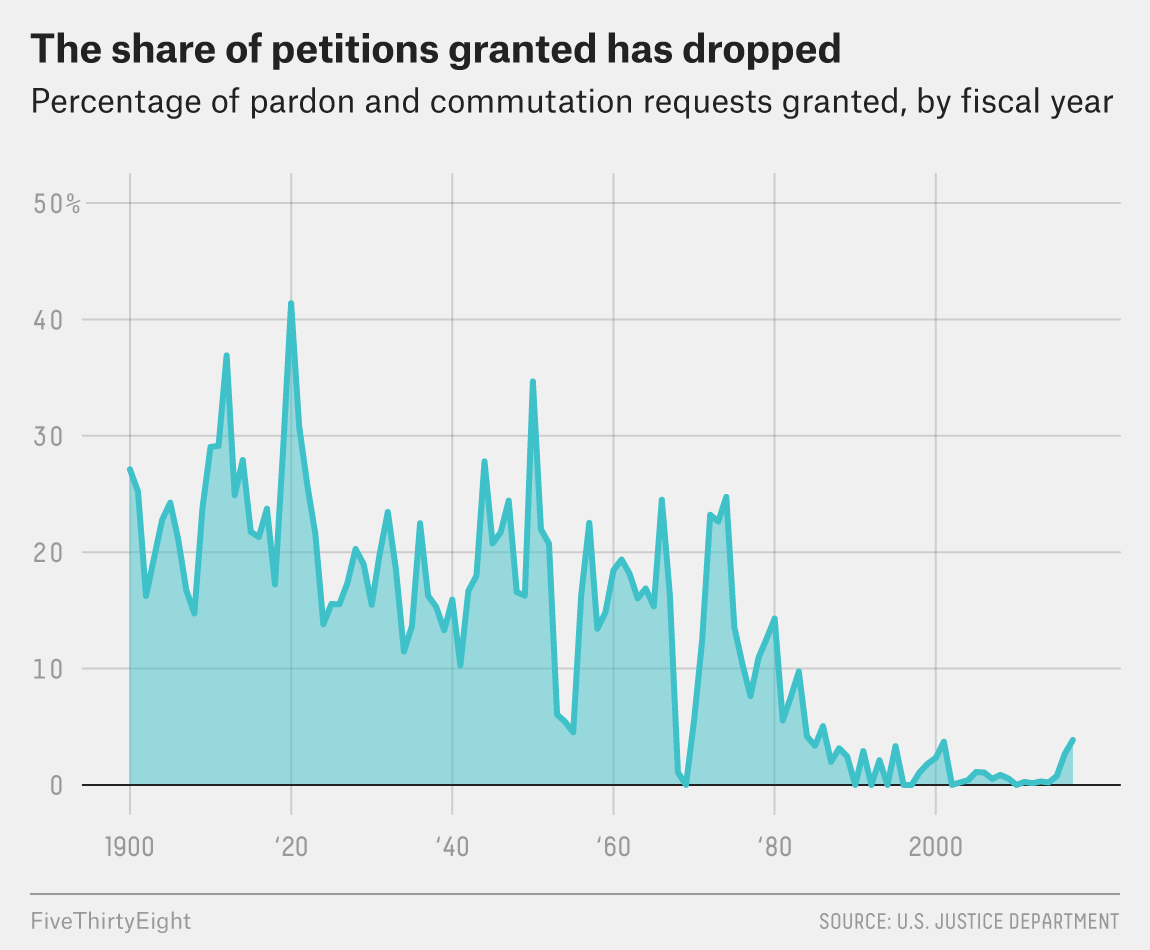Overview
“Pardons are an act of grace.” - Chief Justice John Marshall
“America is the land of second chance, and when the gates of the prison open, the path ahead should lead to a better life.” - President George W. Bush
Matthew Charles has been out of prison for 2 years. He hasn’t fallen prey to the dangerous recidivism enticing behaviors that were thrown at him following his release. He had found religion and actively volunteered and participated in church events. He had a steady job and a supporting family. Meanwhile, the man that formerly prosecuted him was busy finding a loophole in Matthew’s sentence. Despite the fact that Matthew was out of the system, positively engaging with him community, and doing no harm, he is now being forced to go back to prison. While Matthew was being a productive member of society, the prosecutor in his case was being a destructive
The Constitution grants the President the right to pardon any federal offense against the United States, except in cases of impeachment. Presidential pardons restore civil liberties, such as voting rights and the ability to run for public office, among others, to federal offenders. Clemency is similar to a pardon in that it lessens federal penalties; however, it does not completely erase a criminal conviction from a person’s record like a Presidential pardon does. Though the President's pardoning power only extends to federal law, Governors have the power to pardon offenses against state law. Since the President’s jurisdiction is over the country United States, and not of each individual state like Governor's’ jurisdiction is, the President can only grant clemency and pardons to federal offenders, whereas Governors can grant clemency and pardons to offenders of their respective state. Though there is a distinction between the two, both types of pardon have the same effect.
Clemency and pardons both save taxpayer dollars (as the cost of incarceration is incredibly high), and reunite families. Children everywhere unnecessarily grow up without a parent around—and pardons can prevent that. Over half of the prison population consists of nonviolent offenders who have served plenty of time for their offense and should be released back to their families and communities. Matthew Charles, for example, had already served 21 years. Unfortunately, this is an issue that most governors and presidents place on the backburner until the end of their terms. Instead, clemency and pardons should be an ongoing consideration throughout their terms that presidents and governors constantly look at in order to release nonviolent offenders back to their homes. These are people like Matthew Charles. This issue has earned the attention of celebrities and activists all over the world—even Kim Kardashian has used her status to increase the number of presidential pardons. In order to truly make an impact, citizens everywhere need to continue making noise. Sending letters, using social media, and attending rallies all make governors and other politicians see the importance of this issue. Solving this problem will save Americans money, promote safer societies, reunite families, and help actual incarcerated individuals -not just numbers in the system.
 Source: FiveThirtyEight
Source: FiveThirtyEightConservative Solutions
- Write and call your representatives, giving a voice to someone who doesn’t have one
- Sign petitions that are sent to your Governor or President asking them to provide a second chance to someone deserving
- Contact prison reform advocates and ask how to get involved and/or contact them to ask for their support of a particular, deserving candidate
